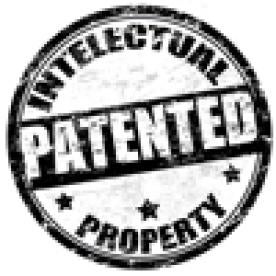The recent jury verdict in a dispute over a generic version of the heartburn medication Pepcid® Complete® would be enough for anyone to reach for a few tablets of the accused product. After an eight day trial presided over by Judge Zobel, a Massachusetts jury last week returned a verdict for Plaintiffs Brigham and Women’s Hospital and Investors Bio-Tech, L.P. (collectively, “BWH”). It found the asserted patent valid and infringed, and awarded approximately $10 million to BWH.
The dispute began in 2013, when BWH filed a complaint against Defendants Perrigo Company and L. Perrigo Company (collectively, “Perrigo”) alleging that their generic version of Pepcid® Complete® directly and indirectly infringed BWH’s U.S. Patent No. 5,229,137 (the “’137 Patent”). As the patent expired before the suit, BWH sought past damages beginning as early as 2008 – when the accused product first hit the shelves. BWH also sought a finding of willfulness, based in part on Perrigo’s alleged comments about the ’137 Patent during the application process for the generic drug, and in a separate legal proceeding.
The case was not without heartburn for BWH. Perrigo asserted, among others, the defenses of laches and failure to mark patented products with the patent number. As to laches, Perrigo filed a motion for judgment on the pleadings arguing that BWH inexcusably delayed filing suit for six years after finding out about Perrigo’s allegedly infringing activities. However, as BWH disputed when it learned of the accused product, Judge Zobel found that the motion involved factual issues that could not be resolved at the pleading stage.
BWH also dodged Perrigo’s failure to mark defense. Because BWH asserted composition claims, Perrigo argued at summary judgment that BWH’s damages were barred by its failure to mark Pepcid® Complete® with the patent number. Perrigo pointed out that the ’137 Patent expired before BWH filed suit, and as such, BWH was limited to pre-suit damages. But because BWH did not mark the product, Perrigo argued that it did not have notice of the patent until it had expired. Thus, according to Perrigo, it could not be liable for any damages. In response, BWH moved for leave to amend its complaint to only assert method claims, which are exempt from patent marking requirements. Despite finding that BWH’s motion was a “transparent attempt to plead around a possible defense,” Judge Zobel granted the motion, and BWH’s case lived to see another day.
Ultimately, the case went to trial and the jury found for BWH. Specifically, the jury rejected Perrigo’s laches defense and found the patent valid and infringed. It awarded reasonable royalty damages of $.035 per tablet, totaling $10,210,071. The jury also found that there was willful infringement.
The case is Brigham and Women’s Hospital, Inc., et al. v. Perrigo Co., et al., No. 13-11640-RWZ, tried in the District of Massachusetts. A copy of the jury verdict can be found here.



 i
i

